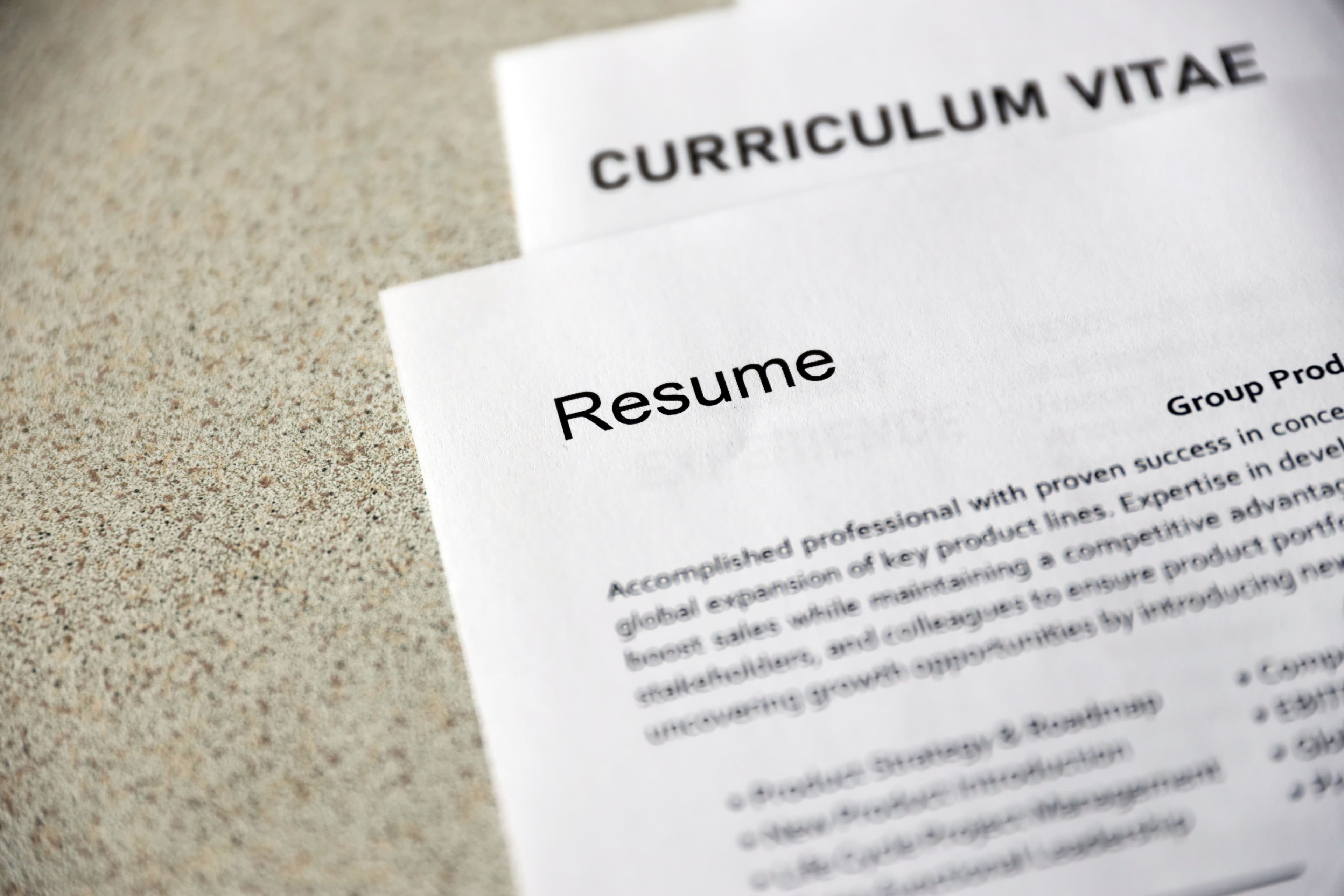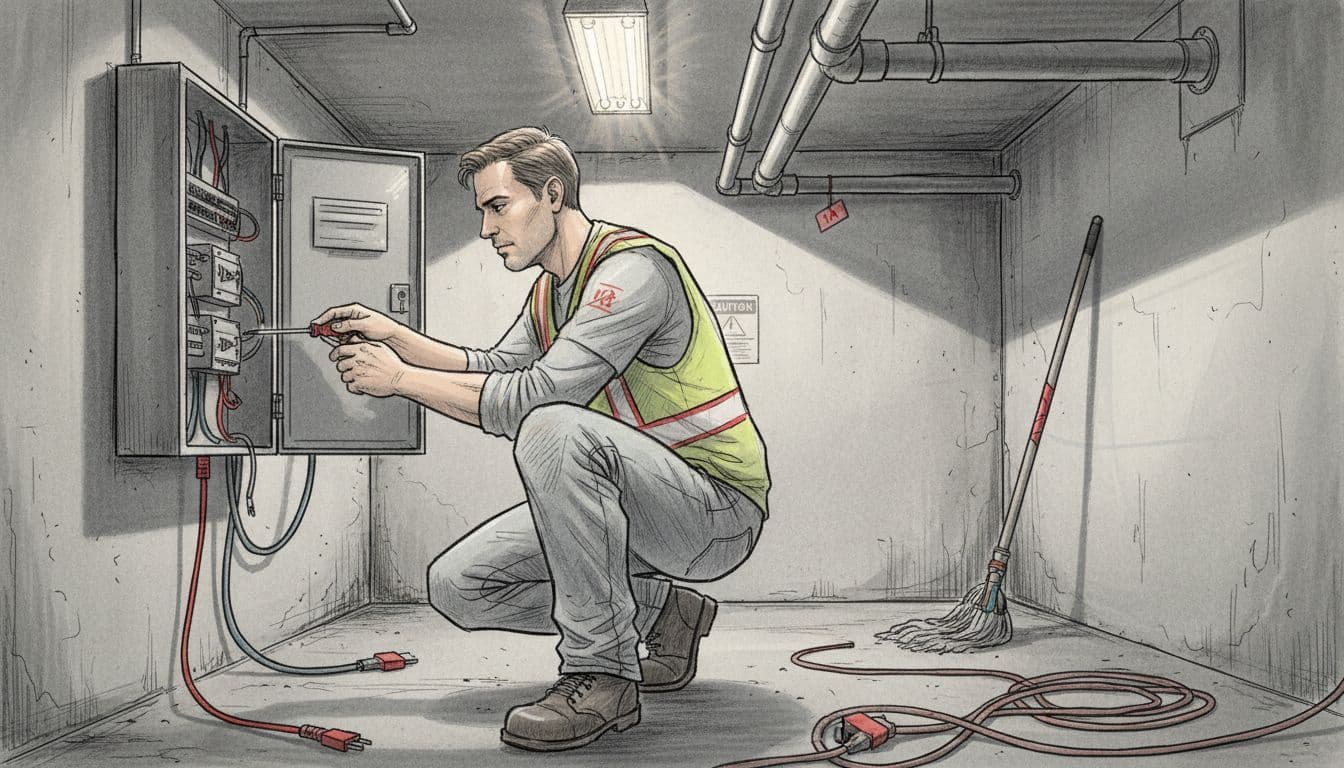Should you go to college?
03.13.2025
Career Exploration

Students and young professionals face a much different question than previous generations: Does education matter? With soaring tuition costs, mounting student debt, and shifting employer priorities, many are understandably questioning the "traditional path" of pursuing higher education. Yet, government data consistently shows that higher levels of education correlate with better earnings and lower unemployment rates. So what's the truth?
This tension between traditional educational paths and the rising value of experience makes an already complex decision that much harder for today's job seekers to navigate.
Through My Career Shop, we've interviewed professionals across dozens of industries to understand the nuances of this question, and the answer is rarely black and white.
In this article, we'll explore three perspectives on education's value: what the data tells us about education's impact on earnings and employment, how the rising importance of experience changes the career landscape, and how to find the right educational path for your career goals.
How Necessary Is a College Education?
When we look at recent data, the correlation between education and economic outcomes is clear: more education means more earnings and more stable employment. According to 2023 data from the U.S. Bureau of Labor Statistics, median weekly earnings increase consistently with each additional level of education:
- Less than high school diploma: $708
- High school diploma: $899
- Some college, no degree: $992
- Associate's degree: $1,058
- Bachelor's degree: $1,493
- Master's degree: $1,737
- Doctoral degree: $2,109
- Professional degree: $2,206
The BLS data shows how one's level of education can make a substantial difference in one's annual income. For example, someone with a professional degree (such as law, medicine, or engineering) earns approximately $114,712 annually, compared to just $46,748 for someone without a high school diploma—a difference of nearly $68,000 per year.
Similarly, unemployment rates decrease significantly with higher levels of education:
- Less than high school diploma: 5.6%
- High school diploma: 3.9%
- Some college, no degree: 3.3%
- Associate's degree: 2.7%
- Bachelor's degree: 2.2%
- Master's degree: 2.0%
- Doctoral degree: 1.6%
- Professional degree: 1.2%
When comparing the national average unemployment rate of 3.0%, those with higher education levels enjoy significantly better job security, while those with less education face more precarious employment prospects.
The Professional Degree Advantage
Unsurprisingly, professional degrees and doctorates have the strongest economic outcomes. With median weekly earnings of $2,206 and $2,109, respectively, these advanced degree holders earn nearly twice the overall median of $1,170. Their unemployment rates are also remarkably low, at 1.2% and 1.6%, suggesting these degrees provide both higher earnings and greater job security.
Even the step from a high school diploma to a bachelor's degree represents a substantial economic difference. Bachelor's degree holders earn a median of $1,493 weekly compared to $899 for high school graduates—that’s approximately $30,888 more annually. Over a 40-year career, this difference could exceed $1.2 million in additional earnings, which significantly outweighs the cost of most four-year degrees.
When calculating the return on investment (ROI) for higher education, the financial benefits often justify the costs, despite rising tuition. However, this calculation varies based on the specific degree, the school attended, and the amount of debt incurred. For example, becoming a research engineer with a degree from a state university with modest student loans typically offers a much higher ROI than an arts degree from a high-cost private college funded entirely through loans.
Shifting Public Perception on the Importance of Education
Despite the clear economic advantages shown in the data, public perception of higher education's value is shifting dramatically. According to recent Pew Research, only 25% of Americans believe a four-year degree is "extremely" or "very" important for securing a well-paying job in today's economy.
Even more surprising than that, nearly half (49%) believe a college degree is less important now than it was 20 years ago, despite the persistent wage gap between degree holders and non-degree holders. Only 22% believe college is worth the cost if someone has to take out loans, while 47% say it's only worth it if no loans are required.
This disconnect between economic data and public perception highlights the complexity of evaluating education's worth in today's economy. While the data shows education still matters significantly for earnings and employment, other factors are clearly influencing how Americans value college degrees.
The Changing Landscape of Career Requirements
The landscape of career requirements is evolving rapidly, with many employers placing increased emphasis on skills and experience rather than formal education. According to Soren Kaplan in the Harvard Business Review, the percentage of jobs requiring a college degree fell from 51% in 2017 to 44% in 2021—a significant drop in just four years.
This shift is evident among major employers like Apple, Tesla, IBM, Delta Airlines, and Hilton, who no longer require college degrees for many positions. These companies recognize that skills gained through experience can be as valuable as those developed in traditional education settings.
This changing employer perspective aligns with public attitudes that have been shifting for over a decade. Even in the mid-2010s, research from Gallup found that the percentage of U.S. adults ages 18 to 29 who view college education as "very important" plummeted from 74% to 41%—a remarkable transformation in how young Americans perceive higher education's value.
The Rising Value of Experiential Intelligence (XQ)
As traditional education faces increasing scrutiny, the concept of "experiential intelligence" or "XQ" is gaining recognition. Kaplan describes XQ as a type of intelligence developed through practical experiences rather than formal education—a complement to IQ that can be cultivated and grown over time.
Unlike IQ, which many consider relatively fixed, experiential intelligence develops through diverse life and work experiences. This form of intelligence encompasses the mindsets, skills, and abilities gained from hands-on learning and career exploration—from problem-solving approaches to interpersonal skills that formal education often doesn't explicitly teach.
For employers, XQ often translates more directly to workplace effectiveness than academic credentials. Learning by doing allows individuals to assimilate and retain knowledge in ways that theoretical education sometimes cannot match.
Recent Economic Improvements for Non-College Workers
The shifting perception of college value coincides with improving economic outcomes for young adults without college degrees. The same Pew Research on college perspectives shows that, after decades of falling wages, young workers (ages 25-34) without bachelor's degrees have seen their earnings increase over the past decade. This reverses a long-standing downward trend that began in the mid-1970s.
Labor force participation among young adults without degrees has also stabilized or improved after long-term declines, and more non-degree workers are securing full-time, year-round employment. While college graduates still maintain advantages in earnings and employment, these improvements for non-college workers may be contributing to changing perceptions about the necessity of a four-year degree.
Finding a Career Path that Works for You
On one side, you have data showing that wages increase and unemployment decreases alongside education. On the other, there’s the sentiment that education may not be as important as experience.
Neither one is inherently right or wrong. But that does leave those who are still figuring out how to choose a career path with an important question: do I need a college education or not?
To help you answer this question, let’s look at the careers where education matters most, where experience wins the day, and jobs that require both.
Careers Where Traditional Education Matters Most
Despite changing attitudes, some career paths still strongly reward or require formal education. Fields like medicine, law, engineering, and academia generally maintain rigid credential requirements, with both regulatory bodies and employers demanding specific degrees.
The BLS data clearly illustrates this reality: professional degree holders earn a median of $2,206 weekly with just 1.2% unemployment. These fields often have a structured progression that begins with undergraduate education and requires graduate or professional school. The licensing requirements for doctors, lawyers, engineers, and many other professionals make a college degree not just beneficial but necessary.
In these fields, the education-experience balance leans heavily toward formal credentials, at least for entry. According to Pew Research, 58% of four-year college graduates found their education "extremely" or "very" useful in providing the skills and knowledge needed for a well-paying job—suggesting that for many, the education investment does translate to career-relevant skills.
However, even in credential-heavy fields, experience eventually becomes critical for career advancement. Medical residents, law associates, and junior engineers all require significant on-the-job training to develop into fully effective professionals, regardless of their academic achievements.
Careers Where Experience Can Outweigh Education
Other career paths place much greater emphasis on demonstrated skills and less on formal credentials. Fields like UX design, social media management, digital marketing, and many tech roles increasingly value portfolios, projects, and demonstrated competencies over degrees.
The BLS data shows a relatively small earnings difference between "some college, no degree" ($992 weekly) and an associate's degree ($1,058)—suggesting that in some fields, partial college attendance with the right experience might yield similar outcomes to completing certain degrees.
In these experience-focused fields, employers often care more about what you can do than where you learned to do it. A compelling portfolio, GitHub repository, or proven track record often outweighs academic credentials. Bootcamps, certificate programs, and self-directed learning combined with practical application can provide the necessary skills at a fraction of the time and cost of traditional degrees.
Companies like Google have created career certificates that deliver focused training for specific roles, allowing job seekers to bypass traditional four-year universities. These certificates, often costing around $100, provide targeted preparation for in-demand jobs—a stark contrast to the substantial investment required for a college degree.
The Skilled Trades and Sales Advantage
Some career paths offer particularly promising opportunities without extensive education requirements. High-demand skilled trades like electricians, plumbers, and HVAC technicians typically require apprenticeships rather than college degrees, yet offer strong job security and competitive earnings.
Similarly, sales roles—particularly in technology and real estate—often value personality traits and interpersonal skills over formal education. As Kashif Khokhar, a commercial account executive leader explains on the My Career Shop Podcast:
"To get started in Tech sales, you don't need a lot (or in some cases, any) technical expertise or knowledge. More often than not, the organizations that are hiring inside sales, SDRs, or BDRs are looking for someone who has a certain set of characteristics: tenacity, grit, and persistence. You need to be someone who is not afraid to hear the word 'no.'"
This emphasis on character traits and soft skills makes sales an accessible field for those without advanced degrees. With commission-based compensation structures, successful sales professionals can often earn incomes comparable to or exceeding those in many degree-required professions.
The same Pew Research on college degrees shows that 41% of recent students would prefer certificates qualifying them for in-demand jobs over traditional degrees. This preference aligns with improving labor market outcomes for young adults without degrees, suggesting that faster-entry paths to good jobs are increasingly viable alternatives to four-year college programs.
Should You Go to College? Find Your Answer Today
The question of whether education matters defies simple answers. The data clearly shows that higher education levels correlate strongly with better earnings and lower unemployment rates. At the same time, public perception is shifting, alternative paths are gaining legitimacy, and outcomes for non-college workers have improved in recent years.
The most balanced perspective is that education's value depends heavily on individual career goals, financial circumstances, and personal learning styles. For some careers, formal education remains the clearest path to success. For others, experience-based learning and skill development provide more efficient routes to fulfilling work.
At My Career Shop, we help individuals navigate these complex choices by providing insights from professionals across diverse fields. We understand that the "right" educational path varies widely based on individual circumstances and aspirations.
To help with your career exploration, we've developed a powerful Career Comparison Tool that allows you to compare multiple careers side by side. This tool helps you evaluate different paths based on factors like educational requirements, earnings potential, job security, and growth opportunities. By seeing these options compared directly, you can make more informed decisions about whether further education makes sense for your specific goals.
Subscribe to My Career Shop Content
Stay up to date with Blog Posts and Podcast Episodes!
Your One Stop Shop For All Career Resources
Whether you are exploring new career paths, building your resume, or preparing for your next opportunity, our tools, templates, and guidance are designed to help you navigate your career journey with clarity and confidence.
Copyright © 2025 My Career Shop. All rights reserved.





























